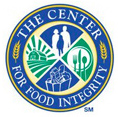
"Many retailers understand the science behind food production practices, but their customers do not," noted Charlie Arnot with the Center for Food Integrity (CFI), at the 2012 North American Strategy Conference on Animal Agriculture. Retailers and restaurant procurement managers go on to note, "When our customers are concerned we have to be too."
To evaluate what are priority issues for retailers and, hence, what producers should keep on their radar, a CFI produced survey was given to the top thought and market leading brands in the U.S. The respondents represented 5,500 stores and approximately half of annual U.S. grocery sales. Results, averaged across the group to protect anonymity, were remarkably consistent between the food industry stakeholders.
In regards to animal welfare, the stakeholders were most concerned with gestation crates, layer housing, and the United Egg Producers/HSUS agreement. Under food safety, retailers expressed concerns related to antibiotic use, genetically-modified organisms in feed, understanding of technology, and expanded STEC testing.
Stakeholders also identified challenges they feel impact both producers and retail buying decisions including livestock input costs, a limited meat supply, the ability to produce affordable food, and CAFO/ environmental challenges. In the future, retailers foresee animal welfare, antibiotic use, shrinking per capita consumption of beef, rising food costs, and diminishing consumer confidence having the most impact on their brands.
When retailers were asked to rate, on a scale of 1 to 10, various sources on the ability to provide useful information, suppliers scored the highest at 6.1, but need to be more proactive. Trade organizations scored a 5.6, with many stakeholders noting that they appear to struggle with what information should be shared, tend to be biased, are slow to react, and often don't contribute to sustainability.
"Most of our food industry stakeholders don't believe they receive adequate industry support to effectively manage food related issues," noted Arnot. According to the brands surveyed, organizations should be more aggressive in sending out new information, but provide facts and data in a clean and easy to use format that can be shared and resonate with guests.
The stakeholders were also asked to rate how confident they were that practices used on farm result in safe food. Beef topped the ranking at 8.1, followed by pork at 8, chicken at 7.9, and dairy at 7.8. At the processing plant, though, dairy ranked highest at 8.2, followed by pork at 7.6, and beef at 7.5. Stakeholders also ranked topics including humane treatment (dairy – 6.9), protection of natural resources (dairy -6.8), and the nutritional value of products (dairy – 7.55).
To view tweets from the conference, search #CFI12.








